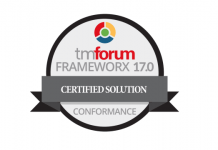
Telcos that take the early plunge to launch “CIO as a Service” to serve the Small and Medium Business (SMB) markets will see an enhanced jump in their revenue growth and profitability. This new service will ensure that their SMB customers are not rapidly and entirely taken away by disruptive cloud services companies like Salesforce, Microsoft, Amazon, or Google. The billions of dollars in revenue from voice, text, streaming TV, and hosting that was irreversibly lost to the likes of Skype, Google, Netflix, WhatsApp, and Amazon in the last five years are forever scarred in the memories of Telcos, who paid the price for their Kodak mindset. Some of those Telcos don’t exist anymore.
SMBs—The Vast Underserved Market for ICT Services
With the rapid adoption of the cloud, Telcos now have a smart window of opportunity to serve SMBs comprehensively with connectivity and IT application services. Broadly defined by many industry analysts, any business with less than 100 employees is considered small, and the ones with less than 500 employees are considered medium or mid-market. For various historical reasons, the vast market of underserved SMB customers has chosen to use mediocre and poorly integrated systems to support their businesses, and Telcos solely as broadband pipes. Over 95% of the businesses in many countries are small or medium. Despite being extremely cost conscious, SMBs want enterprise-grade ICT services at attractive price points. They cannot afford a CIO or IT department, which raises the question, what can Telcos do to elevate the SMB ICT experience?
The Business Case for CIO as a Service
The SMB ICT cloud bundle is the answer. Telcos, now, have all the assets necessary to offer a comprehensive SMB ICT bundle—both for connectivity and for IT application services. Over the last five years, Telcos have invested in high-speed broadband networks, 4G wireless networks, cloud data centers, and new wireless broadband equipment at customer premises. Telcos are now in a unique position to make a game changing choice. It finally boils down to two options: continue to be the pipe for all the digital commerce or be the pipe AND elevate their game to become an integrator of cloud services. Monetize assets to the fullest with a network of cloud ecosystem partners.
A national or regional Telco can now bundle its connectivity services (voice, broadband, IPTV, wireless, hosting, contact center) with enterprise-grade cloud application services from leading cloud services partners to create the ultimate ICT business bundle. In doing this, they become the CIO for the SMB and offer CIO as a Service. The Telco can deliver CIO as a Service by executing an iTunes-like business model with cloud services partners that have a negotiated revenue-share agreement for distribution. Today, most COTS IT applications are available in cloud-service form, including office productivity, document management, enterprise collaboration, accounting, billing, payment, HRM, CRM, payroll, expense management, procurement, SCM, social media management, loyalty management, data analytics, and more.
The Telco data center could be its hub for cloud integration, which could enable implementation of key business processes and rules, that orchestrate the enterprise data of the SMBs between cloud services. For instance, an inquiry made by a customer of an SMB from a social media site could feed into a CRM cloud service, be converted into an order, fed into the order fulfillment cloud service, and later fed into the inventory, billing, loyalty, and document management cloud services.
SMBs Win with Enterprise-Class Services
With Telcos’ CIO as a Service, SMBs win. They can pay one bill to a local Telco, who is providing an integrated communications and IT applications service in a utility model. SMBs are future proofed in terms of technology choices, integration issues, security threats, and governance. They don’t have to worry about hardware, software, maintenance, security, or management
 Telcos Win SMBs with a Sticky Service and Long-term Customer
Telcos Win SMBs with a Sticky Service and Long-term Customer
The Telco sheds its image as a low value add-pipe and elevates to a true business partner that contributes to the SMB’s success with CIO as a Service. Based on economies of scale, the Telco is able to negotiate volume discounts better from its cloud-service partners, thereby becoming a wholesale distributor of cloud services at attractive price points for the SMB. The upsell opportunity for Telcos is integration, process orchestration, storage, security, IoT applications, and cloud services support.
Redundancy in broadband connectivity—wireless and wireline—ensures an always-on service, which is the lifeline for the success of the SMB’s business. This creates a long-term, sticky relationship with the Telco and reduces the dreaded wireline cord-cutting losses. In a partnership with a global systems integrator, the Telco can provide multi-service support with 24/7/365 coverage in multiple languages across cloud services, creating and enabling the SMBs to embrace CIO as a Service and to customize it to suit individual needs.
Cloud Apps Integration: New Growth Engine for Telcos
The cloud integration, eventing, process orchestration, API management, and real-time data analytics technology required for the aforementioned CIO as a Service implementation is now readily available to the Telcos from TIBCO Software. Strategic planning and partnering can enable Telcos to elevate their business from a network of telephone exchanges and hosting data centers to cloud integration exchanges and move up the value chain to ride the next big wave of revenue growth. Visit our TIBCO Cloud Integration page to learn more about the future of cloud and hybrid integration. For more information on TIBCO successes in Telco markets, please visit our telecommunications industry solutions page.





